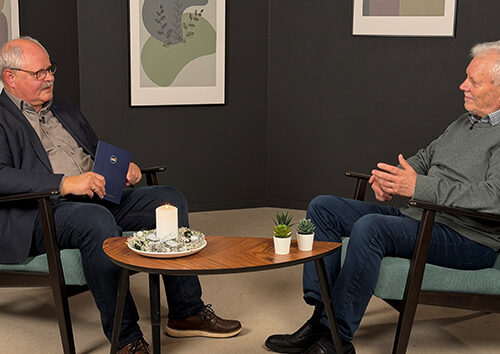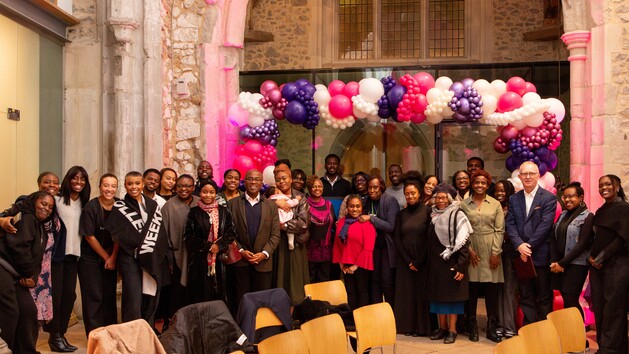24 July | St. Albans, England [David Neal]
When pastors share with members that they intend to pursue a course of academic study concurrently with full-time ministry, confusion and misunderstandings sometimes arise about the purpose and how it will work. For a church heavily dependent on the pastor, it can even lead to crisis. For other churches with healthy leadership teams, it is usually manageable and encouraged. That there is a need for the pastor to remain fresh and relevant in ministry is a given. For many decades, the General Conference Ministerial department has encouraged professional development through its Continuing Education programme.
Among the total of 51 graduates at the Newbold College of Higher Education 2023 Awards Ceremony, seven experienced pastors received Doctor of Ministry degrees. All from the same cohort, they were awarded with with the “Doctor of Ministry in Multi-cultural/Multi-ethnic Mission and Ministry” . And while six of the seven graduates are from within the British Union Conference, their research is relevant and useful for almost all other Unions within the Trans-European Division (TED), as Division-wide membership becomes increasingly multi-cultural and multi-ethnic. Funding towards the cost of the degree is shared between the individual, their employing organisation and the Trans-European Division.
Doctors – Sampson Aboagye, Jeff Couzins, Wayne Erasmus, Mervi Cederström, Steve Palmer, Trevor Thomas and Dan Serb have been kind enough to share brief summaries of their research. For the purpose of brevity for this report, their research results are in the main annotated.
But first – a quick check to ensure that we understand what ‘multi-cultural and multi-ethnic’ means as defined by the Oxford English dictionary.
Multi-cultural:
“Of or relating to a society consisting of a number of cultural groups, esp. in which the distinctive cultural identity of each group is maintained.”
Sampson Aboagye
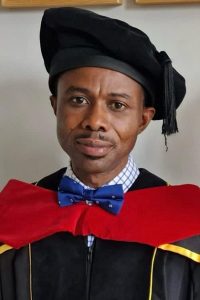 The core of my research was to show how the local church can use Jesus’ method to reshape how evangelism is planned and delivered in their communities, and to share the gospel in their multi-cultural multi-ethnic neighbourhoods. I set out to discover what Ellen White’s “Christ’s method alone” as an evangelistic model means.
The core of my research was to show how the local church can use Jesus’ method to reshape how evangelism is planned and delivered in their communities, and to share the gospel in their multi-cultural multi-ethnic neighbourhoods. I set out to discover what Ellen White’s “Christ’s method alone” as an evangelistic model means.
Here’s what I discovered.
- Cultural Intelligence (CQ). In ministry, it is one’s ability to relate and share the gospel with people who are not like us. Christ Jesus was a highly culturally intelligent person.
- His example invites today’s disciples to leave their pews, comfort zones, and go into the community to be Christ to their neighbours as Christ left heaven.
- His method requires the contextualization of the gospel in a culturally appropriate manner, to rid the gospel from any cultural entanglements which always stand in the way of the gospel.
- Jesus’ method requires a relational ministry. This expresses friendship and love with openness, authenticity, and honesty in living and sharing the gospel. Jesus’ method is nothing but creating and mending relationship between God and humanity with the intention and purpose of saving. His mingling, healing, and feeding (social) ministry were not end to themselves, but to a higher intentional purposeful goal – the redemption of humanity.
- God loves and embraces multi-ethnic/multi-cultural/cross-cultural ministry as He is the author of diversity, and therefore any church which is on God’s errands and desires to pursue the way of Christ, must learn to improve its cultural intelligence to able to share Christ in such a context.
- Worldview plays a very important role in sharing the gospel. Worldview is a default ‘LifeApp’ which every human being has, and it affects how they see and react to the world.
How I plan to use what I have discovered.
I plan to educate and develop local leaders who can see beyond the surface-level of cultural and ethnic differences. In addition, I plan to help members be intentional in presenting the gospel holistically, meeting both the physical needs and spiritual needs of people. I also plan to continuously train and educate members to ensure that general agreement and heart commitment is achieved among members with regards to the purpose of being a church. People preparing for baptism should not only taught how to become Seventh-day Adventist, but also how to become disciple makers.
Sampson Osei Aboagye serves as the pastor of Bedford Central, and Milton Keynes International churches, and the Bedford Romanian Company, South England Conference.
Mervi Cederström
My take on the topic of multi-cultural studies was markedly different from that of many of my classmates, the main reason being that I live and work in Estonia which remains to this day mono-cultural. But I found an angle that could take a critical look at culture while at the same time connect with my favourite area of pastoral ministry – preaching! The Postmodern culture outside the church and the culture inside the church are hugely different, and preaching is one area where a bridge can be built.
The focus of my study was preaching as a tool of outreach in the Post-Soviet and Postmodern context of Estonia where so many of our church’s methods remain stubbornly Modern. As a part of my research, I conducted a preaching series in my Tallinn home church and collected feedback from the mainly young adult listeners.
What I discovered.
After analysing the feedback, I found that preaching can still be meaningful and effective when the preacher keeps in mind the Postmodern air her/his listeners are breathing. In a practical way, this means:
- Not assuming any previous knowledge of the Bible.
- Keeping the sermon structure simple.
- Being honest and vulnerable.
- Showing appropriate emotions and using catchy stories.
- Taking seriously the cares and worries of postmodern youth,
- And most of all, showing how the good news of the Gospel has changed and shaped the preacher’s own life. A changed life is as powerful a witness as ever.
How I plan to use what I have discovered.
I hope my research and its findings can support and inspire my colleagues who labour in similar, highly secular circumstances, and who may sometimes silently wonder – as I did – whether their words make any difference.
Mervi Cederström serves as pastor of Ekebyholm church in the Swedish Union.
Jeff Couzins
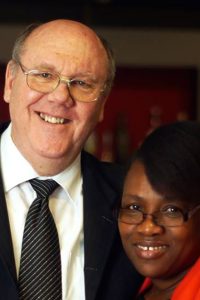 My doctoral research focussed on non-British monoethnic churches reaching out to the British multicultural society. The hypothesis for the research was that “When the cultural distance between church and individuals in society is reduced, their worldview understandings may be accessible, and consequently make it easier for the Christian witness to then explain the Kingdom of God.” Such research is essential before mission can take place, exploring questions of theological, philosophical, and cultural apologetics, as a preparation leading into a Christian witness.
My doctoral research focussed on non-British monoethnic churches reaching out to the British multicultural society. The hypothesis for the research was that “When the cultural distance between church and individuals in society is reduced, their worldview understandings may be accessible, and consequently make it easier for the Christian witness to then explain the Kingdom of God.” Such research is essential before mission can take place, exploring questions of theological, philosophical, and cultural apologetics, as a preparation leading into a Christian witness.
What I discovered.
- Reducing cultural distance facilitates access to worldview understandings.
- Worldviews can be reached and changed in preparation for a Christian witness.
Since both premises have been shown to be valid, they may therefore be suitable for adaption to other forms of outreach.
How I plan to use what I have discovered.
I have continued my research since completing the dissertation, and deepened and broadened my understanding. I am now using my findings in my own outreach efforts, and training others in what I have discovered.
Jeff Couzins has recently been appointed as the Area 2 Ministerial Field Secretary, North England Conference.
Wayne Erasmus
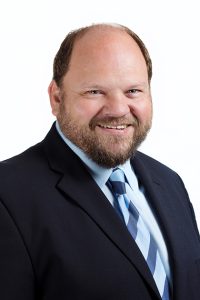 My dissertation is titled: God, Others, and Ourselves: The stories we tell and the meaning we make. A narrative approach to Mission in the South England Conference of the British Union Conference.
My dissertation is titled: God, Others, and Ourselves: The stories we tell and the meaning we make. A narrative approach to Mission in the South England Conference of the British Union Conference.
What I discovered.
My journey has led me to a greater appreciation of our personal and collective histories and stories as they interact with and shape our understanding and approaches to Mission. Since God is the One who comes to us, who makes the first move, and who crosses the boundaries and barriers to restore relationship, and to “break in” on our personal and collective experiences, we are encouraged to join God in His mission and to learn from the Incarnation as a meaningful approach.
How I plan to use what I have discovered.
My work in the South England Conference Church Growth Department has been supported by this study. It is a challenge to much of our “method” driven approaches and short(er)-term expectations for church planting and mission within our territory.
Wayne Erasmus serves as the Church Growth and Adventist Mission director for the South England Conference.
Steve Palmer
The heart of my research was to discover a strategy to manage members expectation of the pastor’s work in the context of multi-cultural churches in Birmingham, England. The research method employed in the design of this project was a qualitative one.
What I discovered.
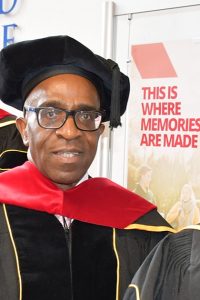 Members from the different cultural groups in both congregations believe that the pastor should be knowledgeable about the cultural background of the various cultures and be extremely culturally intelligent.
Members from the different cultural groups in both congregations believe that the pastor should be knowledgeable about the cultural background of the various cultures and be extremely culturally intelligent.
- Both the members and the pastor should increase their cultural intelligence. Additionally, it also shows that there are more similarities than differences in expectation. However, the differences that exist is significant in that it explains that culture can have a greater influence on expectations.
- Some of the leadership team members and the participants have grown in their awareness and understanding of the different cultures and have become more culturally intelligent.
- Because of the commonality in the global Adventist teachings, there is an expected uniformity in behaviour and practice in our local congregations.
However, this study has shown the contrary, and has highlighted that although Adventist doctrines are the same worldwide, cultural differences can affect expectation. The results show that even among people of the same religious persuasion, where things on the surface appears to look the same, there can be some distinct differences.
Steve Palmer serves as the pastor of the Kingstanding and Perrybeeches district of churches, Birmingham, England.
Dan Serb
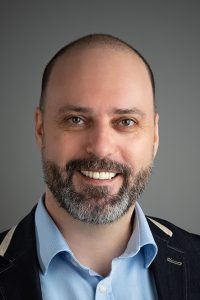 The title of my dissertation is:
The title of my dissertation is:
A Cross-Cultural and Cross-Ethnic Model of Integrated Ministry to Second-Generation Immigrant Youth in the Seventh-day Adventist Church in Dublin.
What I discovered.
- Second-generation immigrant youth are in transition towards maturity. They are on a journey of self-discovery which overlaps with the journey of spiritual formation. This life-stage is marked by confusion, uncertainty, and vulnerability.
- Second-generation immigrant youth see a clear distinction between spirituality and religiosity.
- For second-generation immigrant youth, circumstances, life-stages, and feelings dictate one’s understanding of who God is. Moreover, the Bible needs to be adapted to one’s life circumstances, and not the other way around.
- Second-generation immigrant youth see socialising with their peers from church as a means for mutual accountability and safeguarding against making wrong life-choices.
- Second-generation immigrant youth are largely indebted to their parents’ cultural and traditional worldview regarding church.
How I plan to use what I have discovered.
Based on the findings, a practical model of ministry has been developed. However, for the model to have wider European applicability it needs to be tested against other youth ministry models in Europe. During a Sabbatical in spring 2024, I plan to facilitate engagement on both the findings and the theoretical model, from youth and youth leaders from 5-7 Adventist churches in various European cities. The overall study results would materialise in a book meant to provide a blueprint for effective ministry to European Gen Zs.
Special thanks: Dr Kenley Hall (faculty advisor) and Pastor David Neal (study mentor).
Dan Serb serves as President of the Irish Mission.
Trevor Thomas
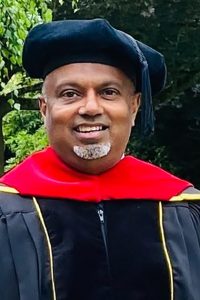 I was challenged to look at issues facing the Adventist church in Britain, challenges that lie between providing a nurturing environment for migrant members while at the same time sharing the Gospel with an Indigenous population. Included was the challenge of governance within a multi-cultural church between majority and minority groups at local church and national levels.
I was challenged to look at issues facing the Adventist church in Britain, challenges that lie between providing a nurturing environment for migrant members while at the same time sharing the Gospel with an Indigenous population. Included was the challenge of governance within a multi-cultural church between majority and minority groups at local church and national levels.
However, as a pastor of a local church, I discovered that there is a more fundamental challenge facing our mission and ministry. Sadly, we are losing as many as 70% of our teenagers from our congregations. from as early as their mid-teens, but more predominantly from the university age group.
There are of course many factors that contribute to why our young people choose to leave the church. One factor is that young people do not always engage with the weekly sermons. During my investigation, I looked at the intellectual, social, and moral development of adolescents and young adults, the sermons of talented youth speakers within the South England Conference, and the guidance of established youth speakers from the wider Christian community. I also looked at the many ways God communicates to his people throughout the Bible and why Jesus chose to communicate the gospel through the parables.
What I discovered.
- During the adolescent and young adult years a dramatic retelling of the Bible stories have the effect of drawing young people into the story through their imagination, so that they can experience the spiritual transformation and growth of the central character for themselves.
- Bible stories allow young people to think abstractly about how they would respond in a situation like that of David facing Goliath, the moment that David prays for the courage to face the challenges of life, not in his own strength but through a faithful and committed relationship with Jesus.
- Bible stories also teach us fundamental principles of our faith, such as the power of prayer and perseverance, the value of health and education, and the difference between right and wrong. And as simple as it may sound, our adolescent and young adults learn these fundamental principles as they experience Jesus for themselves through the dramatic retelling of the Bible stories.
How I plan to use what I have discovered.
I plan to organise seminars as to why people and the church need to implement Jesus’ method, taking into consideration the internal atmosphere and external factors of the church. There would be training, with real life role play for the new things to be embedded in the minds of the people, equipping the laity to evangelize their community, and overcome rejection of those who are not receptive.
To ensure Total Membership Involvement, I will continue to educate the church to have proper understanding of worship in order to improve church’s spiritual activities and mission. This is to help members know and understand that worship is not entertainment and that in church life, there are no spectators and performers, beccause we are all worshippers and co-workers of God for the souls of humanity. Thus, in shaking and transforming the worldview of members to see things differently – the hope is that they too will be worldview changers.
Trevor Thomas serves as the pastor for Reading West, South Reading, and Newbury district of churches, and Area 5 Coordinator for the South England Conference.
_____________________________________________________________________________________________
¹In pursuing a Doctor of Ministry degree with Andrews University, the pastor is invited to, “Critically reflect on, articulate, and apply biblically based principles and values for excellence in mission and ministry. Conduct research and implement an intervention in response to ministry challenges and trends in a glocal context, related to the primary field of service… Integrate knowledge and skills acquired into an effective ministry practice and evaluate the resultant impact on one’s personal experience and ministry.” To find out more visit the Doctor of Ministry Program website.
[Featured Image photo credit, David Neal: From left to right, Wayne Erasmus, Sampson Aboagye, Mervi Cederström, Jeff Couzins, Steve Palmer, and Trevor Thomas. Not pictured in cohort group, Dan Serb, who graduated in absentia].


